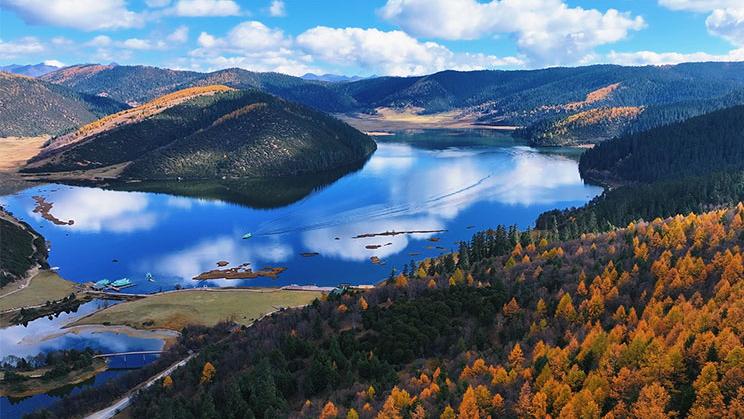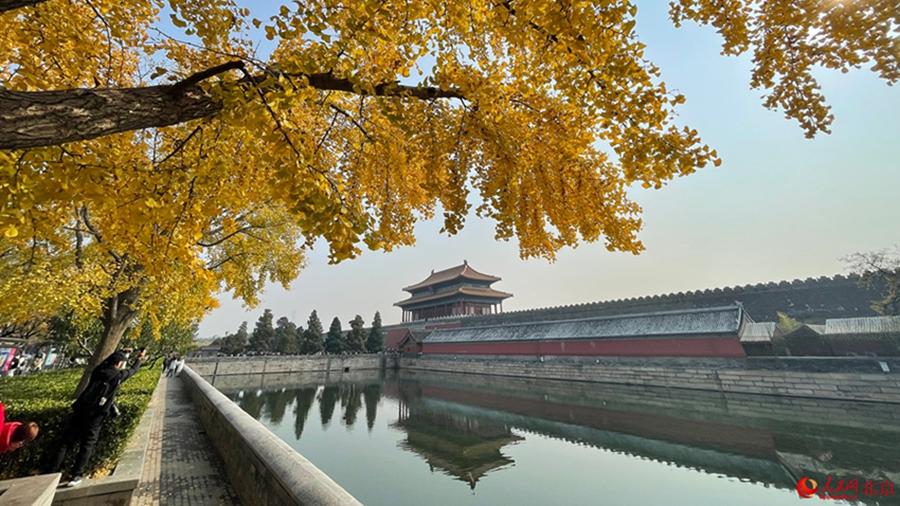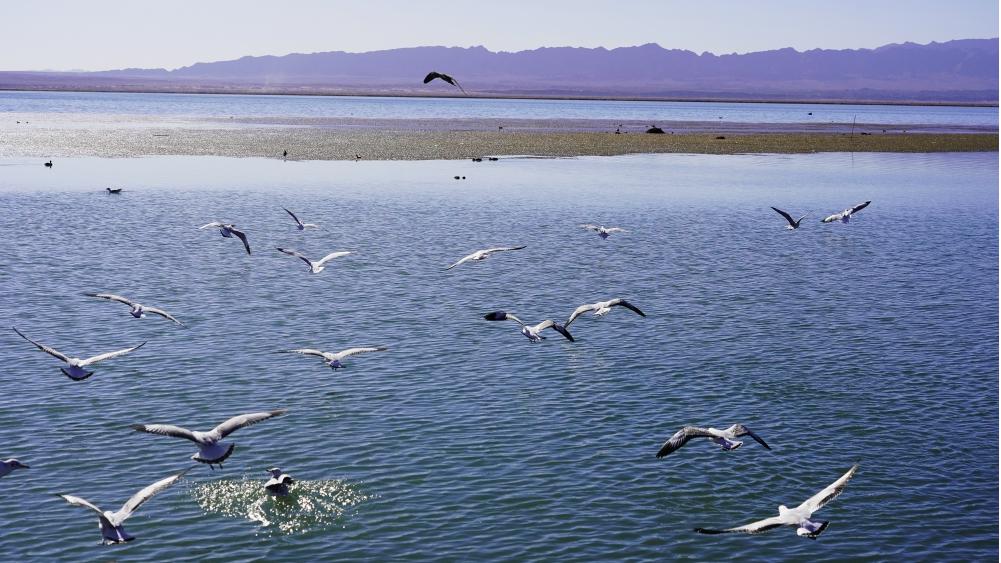Foreign journalists serve as ambassadors for telling China's stories in Inner Mongolia
The Belt and Road Youth Friendship Exchange Program brought a foreign media group to Hohhot, capital city of north China's Inner Mongolia Autonomous Region in late October, showcasing the city's modern development and rich cultural heritage.
The five-day event welcomed 30 journalists from 19 countries across Eurasia and the Arab world, who shared China's stories with their firsthand experiences and observations.
Russian journalist: Capturing China's beauty through photos
For Ivan Shapkin, a first-time visitor to China, everything sparked his curiosity. Shapkin revealed that he only knew China as a country with a long history and rich culture before visiting the country. "But I found that the food, architecture, natural landscapes and traditions here all opened my eyes. I found out what a modern country China is," he said.
Shapkin was particularly impressed by emerging industries in the Hohhot Economic and Technological Development Zone and Horinger New Area. He said foreign journalists were wowed by manufacturers of new energy vehicles for commercial use and drones during their visit.
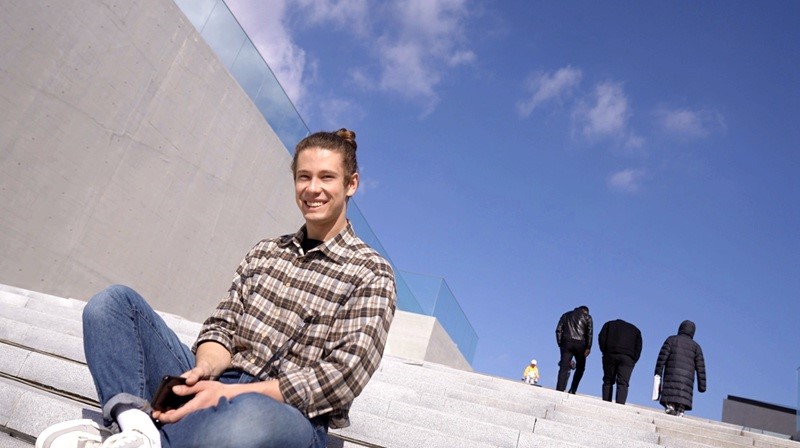
Photo shows Ivan Shapkin, a Russian journalist, in north China's Inner Mongolia Autonomous Region. (People's Daily Online/Yuan Meng)
Shapkin recorded what he saw in China with his pen and camera. He has published many newspaper articles and photographs about China, including tai chi, Chinese calligraphy, and the beauty of Beihai Park.
"This time in Hohhot, I took many photos, such as Laoniu Bay, a beautiful canyon located at the intersection of the Yellow River and the Great Wall, two landmarks in China," Shapkin said.
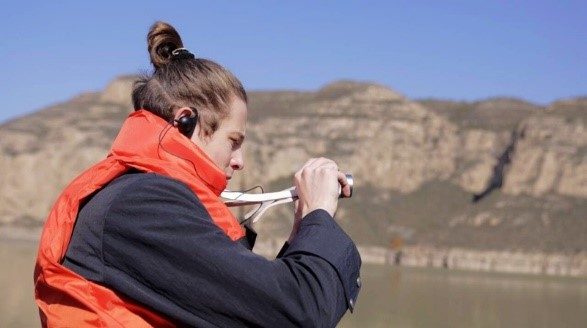
Ivan Shapkin, a Russian journalist, takes photo of Laoniu Bay in north China's Inner Mongolia Autonomous Region. (People's Daily Online/Yuan Meng)
Egyptian journalist: China's development model is more suitable for Egypt
Mazen Eslam Afify Ahmed, an Egyptian journalist and a China hand on his third visit to the country, has been studying Chinese since 2019 at Egypt's Ain Shams University.
"Egyptians really love China and its people. Just as Egypt has its pyramids, China has the Great Wall - we're both ancient civilizations," Ahmed said.
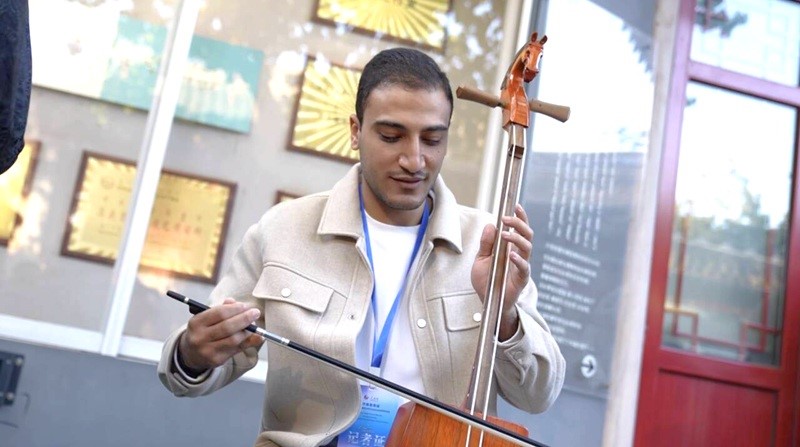
Mazen Eslam Afify Ahmed, an Egyptian journalist, tries to play horse-head fiddle, a representative musical instrument of the Mongolian ethnic group, in north China's Inner Mongolia Autonomous Region. (People's Daily Online/Yuan Meng)
During the tour of a smart ranch, Ahmed and other journalists were fascinated by the automated dairy production line. He was amazed that 80 cows can be milked in just eight minutes, noting that Arab countries, especially Egypt, are keeping a close eye on agricultural developments.
"Every time I come to China, I can feel the new development and changes in China and see the new path towards modernization for developing countries," he said.
Noting that Egypt was one of the first countries to join the Belt and Road Initiative (BRI), Ahmed said China and Egypt have engaged in many cooperation projects under the BRI framework. "China has given Egypt a lot of help," he added.

Mazen Eslam Afify Ahmed, an Egyptian journalist, poses for photos in the Hohhot Sculpture Museum in north China's Inner Mongolia Autonomous Region. (People's Daily Online/Yuan Meng)
Beyond reporting: Building bridges through language
The Hohhot trip brought together journalists from diverse backgrounds. As Ahmed puts it, "We have become good friends despite our different cultural backgrounds thanks to Inner Mongolia." Shapkin, who affectionately refers to Ahmed as "the Egyptian guy who speaks fluent Chinese," was inspired to start learning Chinese himself.
Ahmed became the media group's unofficial Chinese interpreter. "With China being an economic powerhouse, mastering Chinese opens doors for employment and investment," he said, adding that there's a growing interest in learning Chinese across Egypt and other Arab countries.
"As a journalist and someone who has learned Chinese, I see myself as an ambassador. It's my duty to show the real China to more people," Ahmed said.
(Web editor: Hongyu, Wu Chengliang)










